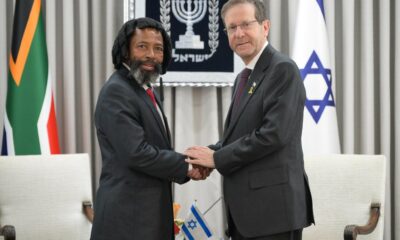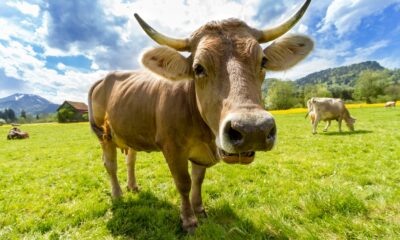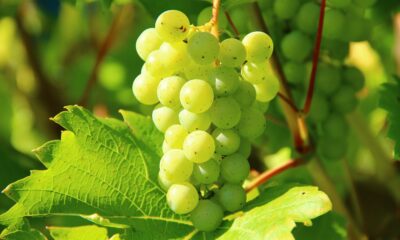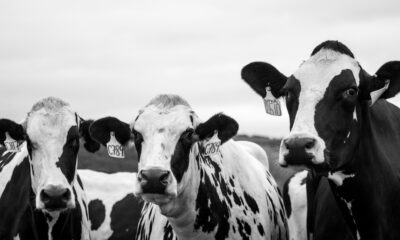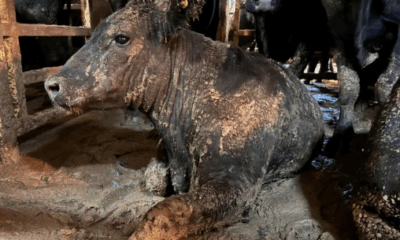Business
From Struggle to Exports: UDF Joins Black Farmers to Drive Middle East Trade
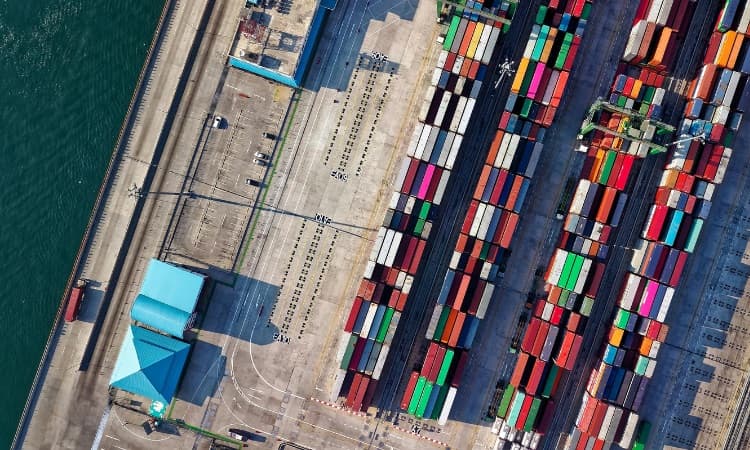
The United Democratic Front, once at the heart of South Africa’s liberation struggle, is back in action ,this time, to fight for economic freedom in rural communities.
A New Mission for an Old Giant
Once a powerful force in South Africa’s anti-apartheid movement, the United Democratic Front (UDF) is writing a new chapter, one rooted in agricultural revival, rural empowerment, and international trade.
Now operating as UDF-SA, the civic group is working with black subsistence and commercial farmers, traditional leaders, and youth entrepreneurs to establish new export routes to the Middle East. The scale is ambitious: over 3,000 black farmers stand to benefit.
The Vision: Turning Fields into Foreign Trade
The project is not just another empowerment programme on paper. It’s already in motion.
Key features include:
-
Targeted exports of beef, lamb, goat, poultry, fruit, seeds and vegetables.
-
Support for 1,200 new women- and youth-owned agricultural enterprises.
-
Agreements with traditional leaders, unlocking access to communal land for farming expansion.
-
Eight certified Halaal-compliant food processors contracted to handle and package goods to meet Middle Eastern standards.
-
Backing from The Land Bank, with commercial banks and investors showing strong interest.
According to Juliet Diratsagae, a UDF-SA organiser, the initiative is led by a consortium anchored by Mboweni Brothers Incorporated, a family-run business linked to the late Tito Mboweni, former finance minister and former Reserve Bank governor.
The Return of the UDF: Not Just Nostalgia
For many South Africans, the UDF evokes memories of street marches, grassroots organising, and anti-apartheid unity. Founded in 1983, the UDF grew into a federation of over 500 civic organisations spanning trade unions, student movements, women’s groups and township committees.
Dissolved in 1991 after the ANC and other liberation movements were unbanned, the UDF is now being revived with a civic purpose: to hold government accountable, promote economic justice, and represent marginalised voices outside formal political parties.
“This isn’t about politics,” said UDF-SA’s Mpho Nchabeleng. “It’s about communities taking charge of their economic future. We are creating real pathways for farmers to access global markets.”
Traditional Leaders Come on Board
The success of this initiative depends heavily on the cooperation of traditional leaders, many of whom control vast communal lands.
So far, UDF-SA has signed land access agreements with several chiefs and royal councils. Consultations with others are set to conclude by October 2025. Meetings are also lined up with national and provincial agriculture officials, including the Departments of Land Reform and Rural Development.
This kind of collaboration marks a shift in approach , moving away from fragmented, top-down land reform projects toward community-driven partnerships grounded in local trust.
What Will Be Exported And Why the Middle East?
The initial focus is on Halaal-certified meat (beef, lamb, goat, chicken), along with fruit, vegetables and seeds. These are in high demand in Gulf countries, where import dependency is high and buyers are increasingly interested in ethically and sustainably sourced food.
South Africa, with its strong agricultural base, proximity, and Halaal certification infrastructure, is well-positioned to become a preferred supplier, but until now, black farmers have largely been excluded from those trade pipelines.
This project aims to change that narrative, using export earnings to fuel local job creation, agribusiness development, and youth enterprise.
Public Reaction and National Impact
Social media reaction has been overwhelmingly positive, with users on X (formerly Twitter) calling the project “the kind of transformation we need” and “proof that struggle veterans haven’t lost touch with the people.”
Some economists have flagged the project as a model for rural economic development, especially if access to land and capital continues to expand.
With food insecurity, youth unemployment, and land reform all sitting high on South Africa’s policy agenda, this project is emerging as a rare win-win scenario, marrying history, community and commerce.
In a country still haunted by the unfinished business of land and economic justice, the UDF’s new mission is refreshingly practical.
Where once they fought against apartheid laws, they now fight for market access, rural opportunity, and a meaningful seat at the global economic table.
And if the plan works from dusty village kraals to supermarket shelves in Doha or Dubai, South Africa might just rediscover what “people’s power” really means in the 21st century.

